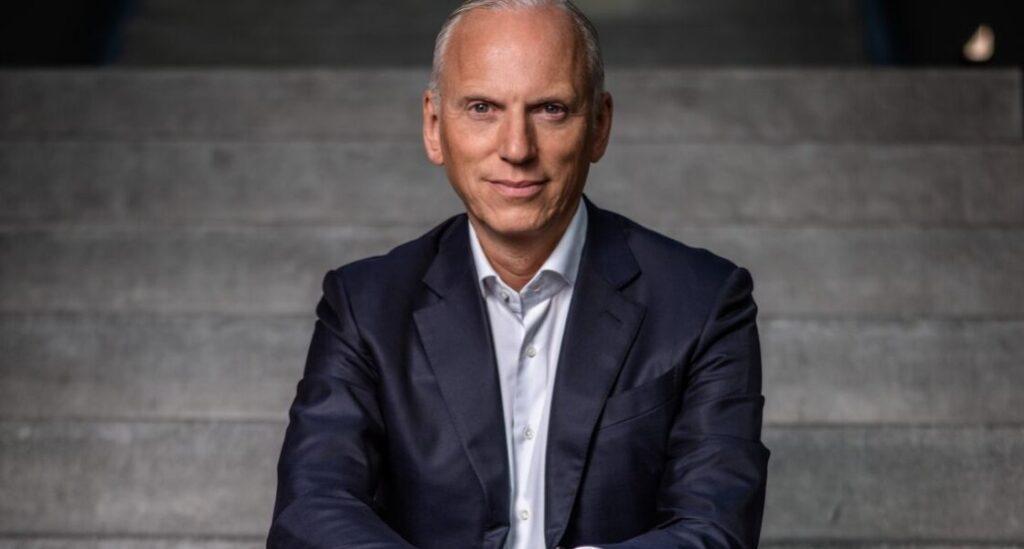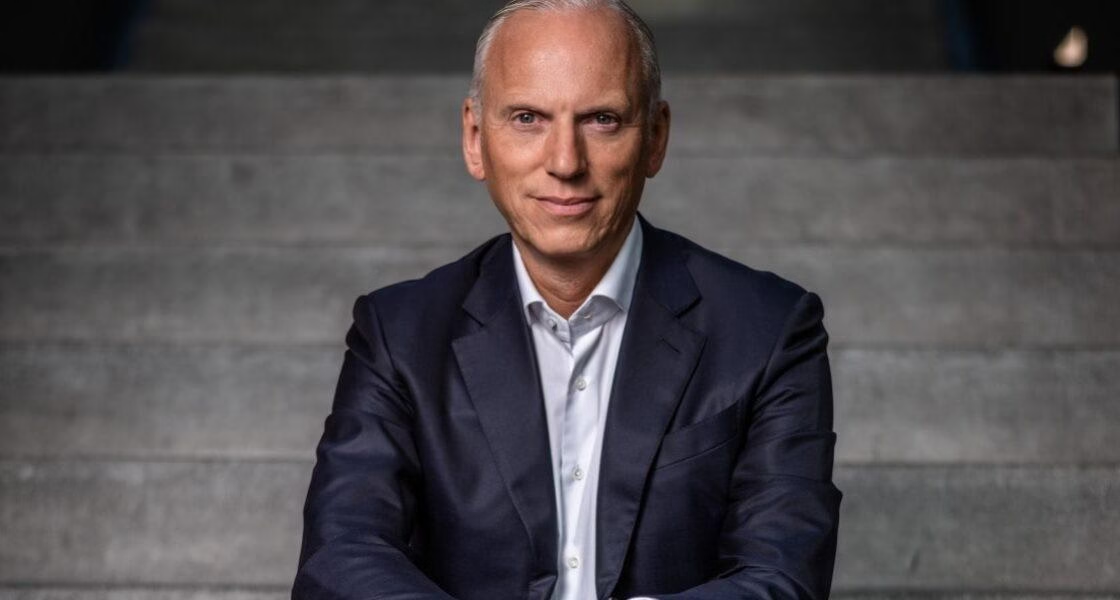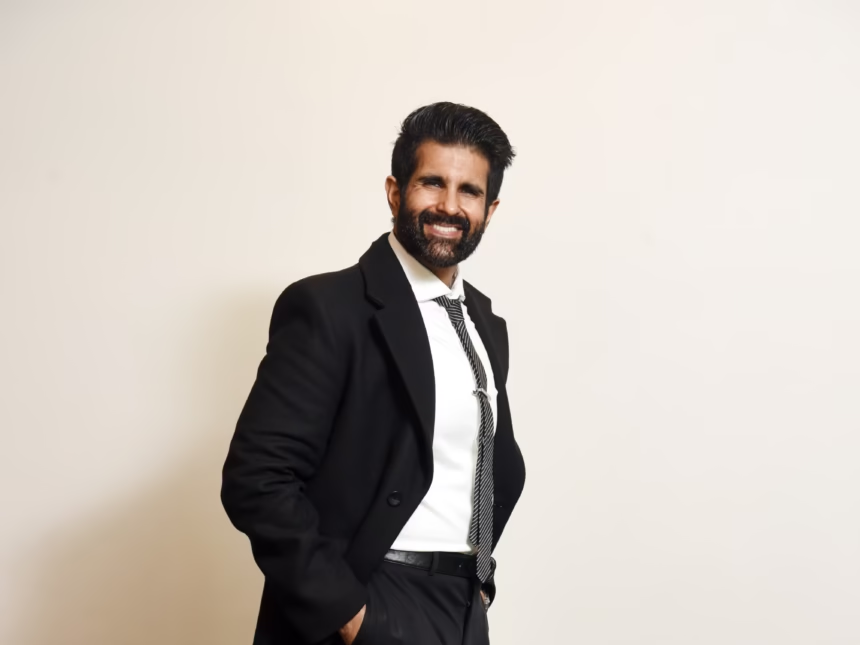Pieter Nota, Member of the Board of Management of BMW AG, Customer, Brands, Sales
Source: BMW
Mr Nota, 2020 can’t have been an easy year for your sales and marketing team. How big of a challenge was the coronavirus pandemic?
I would certainly agree with that. Last year was marked by huge uncertainty, big differences between markets around the globe and the fact that demand and production were more or less shut down in parallel for several weeks for the first time in history. We responded to the coronavirus pandemic with a lot of agility in our sales management and production, and by adapting our sales channels quickly and systematically. Thanks to this, and despite the restrictions on retail, we concluded the year with an all-time sales high for the last quarter. We are all proud of that.
We also forged ahead with digitalisation of our sales and marketing – because, particularly now during the coronavirus, customers really want the sales process to be as contact-free and as convenient as possible.
And you were able to respond to that immediately?
Yes, we acted quickly and systematically: We enabled sales representatives at our retail partners in more than 60 markets to advise customers and sell vehicles without restrictions, from any location, back in April. So, for example, they can configure a customer’s ideal car together with them on the phone using a shared screen or even give them a live tour of the cars they have in stock.
The second step for us was to take the sales process for retail partners largely online within a short space of time via our high-traffic websites in key markets. We plan to continue the rollout in other markets this year and are working with retailers to give our customers the option of buying their individually configured custom vehicle entirely online in the future and having it delivered to their front door – creating an entire online customer journey that is completely seamless: from configuration to ordering and throughout the use phase.
So, that means your new sales strategy is mainly aimed at online sales?
Online sales is an important aspect of our new strategy, of course, but our new sales concept goes much further than that. We have stated our aim of offering the industry’s best premium customer experience in close collaboration with our retail partners. We want to differentiate ourselves from the competition in this way.
Our customers buy and use their vehicles differently today than they did in the past. Connectivity plays an increasingly important role, in addition to the actual driving experience. Customers don’t just want to integrate their digital life seamlessly into their vehicle; they also expect us to offer options, both for the vehicle purchase and during the use phase, that are tailored to them personally. They want their vehicle to adapt and grow with them, so to speak, as their mobility needs change – and we are systematically responding to this shift.
So, you’re mainly talking about greater use of digital technologies?
Yes, that’s right. We definitely see this as an opportunity. We will be investing a triple-digit million euro amount annually up to 2025 in the digitalisation of our sales and marketing – building on the momentum from 2020 and reorganising the division across all markets and all disciplines. As well as a new organisational structure, we are also creating an integrated and connected IT infrastructure that will allow us to implement our new strategy in a way that is tailored to each region.
You recently reorganised your whole marketing agency landscape.
That’s right. That’s also part of our new strategy. The new agency model “THE MARCOM ENGINE” lays the foundation for a personalised and targeted customer approach in the future. Instead of over 80 agencies operating regionally, we will be concentrating in Europe on two higher-level agency partners, whose portfolios complement each other perfectly, for implementing our new marketing concept together.
What exactly will change for customers as a result of your new sales approach?
If customers choose to share their data with us, thanks to digitalised processes, we can get to know their wishes and preferences better than ever. We know which products or services they might be interested in. Having this as a basis saves us time and enables us to provide an individual offering that is customised for them. This won’t just be for the vehicle; it includes all relevant services: from financing all the way to a charging package for their electric drive train. And customers will obtain all these things from a single source.
We want to offer them a premium customer experience – from the initial point of contact all the way to using the vehicle.
The next step will be to expand aftersales upgrades for vehicle functions on demand previously only available as optional equipment ex works. This will enable us to offer our customers additional vehicle functions they can use flexibly or just for a limited time, if they choose. This means they can continue personalising their vehicle and adapting it to their mobility needs on an ongoing basis.
Can you give us an example of which features you are talking about?
Additional features, like driver assistance systems, selected light and sound packages, or even suspension. A good example is the BMW Drive Recorder. Our vehicles already come with cameras that can be used for additional purposes. For example, if you want to take pictures for your digital photo album while driving along a winding mountain pass, you can activate the BMW Drive Recorder. This feature is especially popular with customers as an upgrade. The aftersales take rate is higher than at initial configuration.
Another example is steering wheel heating: If a customer is driving in sub-zero temperatures, our voice assistant will invite them to try out the steering wheel heating – even though they didn’t order it when they bought the car – free of charge for a trial period. If the customer likes the feature and wants to keep using it, they can pay for the corresponding upgrade – perhaps only during the colder season or for a winter vacation.
You rely on all possible customer and vehicle data to do this. Is that in your customers’ interest?
Let me be clear: Our customers naturally decide for themselves whether to make personal data available to us so we can optimise how they experience our vehicles and services. The high standards customers expect from our products and services set the benchmark for how we handle their data.
So, how are your customers responding to these options? Do you think this business case has potential?
It certainly does. Pilot projects in Germany, the US and the UK have shown that customers are very interested in these additional vehicle features.
We expect the proportion of aftersales upgrades for vehicle functions to account for a significant percentage of our highly profitable optional equipment business in the future.
This will also enable us to reach additional customer groups, such as used-car buyers or customers who lease or rent their car and prefer to purchase vehicle functions for a limited time only.
And how do customers activate these additional options?
They use their personal BMW ID to log in to the BMW ConnectedDrive Store, where they can access the entire BMW Group digital ecosystem, including the wide range of aftersales vehicle upgrades. This will also be possible using our brand apps in the future.

So, the apps give you a direct line to the customer?
Yes, they do. Their new design makes them easier and more intuitive to use and provides us with an interface for individualised dialogue with our customers.
Today, they not only provide access to the status and functions of the vehicle, but with the BMW Digital Key, for example, it is possible to integrate the smartphone as a vehicle key, or integrate Amazon Alexa Car or redeem BMW Points for BMW Charging. They also connect our customers directly to their BMW partner so they can arrange a service appointment quickly and easily.
That means easy, straightforward service appointments will soon be a reality?
Customer support is extremely important. Our customers really appreciate having their vehicle serviced and repaired by our retail partners. Our partners provide service for around 15 million customers a year, on average, conducting almost half a million vehicle diagnostic tests worldwide every week. Those are pretty impressive numbers. That’s also why we reorganised this business unit late last year, as we continue to enhance customer satisfaction and convenience even more.
What does that mean exactly?
One aspect of this is expanding our product offering: for example, through remote diagnostics. In the future, if the vehicle indicates an error message in the vehicle display, the customer will simply be able to call their BMW partner directly from the vehicle. If the customer agrees, vehicle data is transmitted over-the-air and the service employee can perform remote diagnostics. If the car needs to be brought into the workshop, a service appointment can easily be arranged at a convenient time. This means that a spare part can be ordered directly, and the workshop appointment optimally aligned with it. Remote diagnostics will be rolled out in stages worldwide this year, once the initial pilot projects have been completed.
As of when will customers be able to benefit from your new sales measures?
This will vary between markets for BMW and MINI and also depends on individual features. But our two fully-electric vehicles, the BMW i4 and BMW iX, will certainly be released onto the market with the new sales concept. Without giving too much away, the main focus will be on aftersales upgrades for vehicle functions on demand, as well as a seamless and especially customer-centric configuration process with personalised options. We will also be bundling offerings – from winter wheels to the leasing contract – so customers get everything they need from a single source.
To wrap up, there’s another topic the BMW Group has dedicated itself to: sustainability. Does that also apply to sales and marketing?
Yes, of course. The BMW Group’s belief that there can be “no premium without sustainability” also applies to us in the Sales and Marketing division. We are already helping our customers make appropriate, sustainable decisions about products and drive trains and training our employees and retail partners to become ambassadors for our sustainability ambitions. Topics like recycling and use of secondary material are also important issues for us in Sales and Marketing.
The BMW Group
With its four brands BMW, MINI, Rolls-Royce and BMW Motorrad, the BMW Group is the world’s leading premium manufacturer of automobiles and motorcycles and also provides premium financial and mobility services. The BMW Group production network comprises 31 production and assembly facilities in 15 countries; the company has a global sales network in more than 140 countries.
In 2020, the BMW Group sold over 2.3 million passenger vehicles and more than 169,000 motorcycles worldwide. The profit before tax in the financial year 2019 was € 7.118 billion on revenues amounting to € 104.210 billion. As of 31 December 2019, the BMW Group had a workforce of 126,016 employees.
The success of the BMW Group has always been based on long-term thinking and responsible action. The company has therefore established ecological and social sustainability throughout the value chain, comprehensive product responsibility and a clear commitment to conserving resources as an integral part of its strategy.









